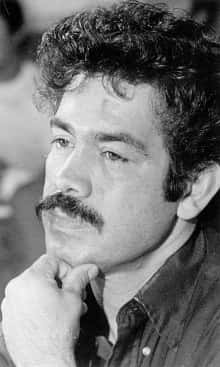Rodolfo 'Corky' Gonzales: Google Doodle honors iconic Chicano boxer, poet, activist

On October 1, Friday, Google dedicated its Doodle to Rodolfo "Corky" Gonzales — Chicano boxer, poet, activist — as part of its celebration of Hispanic Heritage Month. The Doodle illustrates some important moments from Gonzales' life, from how he picked crops as a boy, to his career in boxing, to his days as a political organizer. It highlights portions of Gonzales' iconic poem — 'I Am Joaquin' — about the Chicano movement in the 1960s.
Gonzales was born in Denver on June 18, 1928, to a poor family. His mother died just two years later, following which he was raised by his father. When not in school, the little boy worked in the sugar beet fields. Despite the difficulties and the long distances he was required to travel every day to attend his classes, Gonzales graduated from high school with a B average at the age of 16.
RELATED ARTICLES
Ildaura Murillo-Rohde: Google Doodle honors legendary Panamanian-American nurse
Who was Kadambini Ganguly? Google doodle honors first female doctor of India on 160th birthday
However, Gonzales' hard times continued as his studies at the University of Denver had to be stopped due to tuition costs. Soon after, he began donning a pair of boxing gloves that subsequently helped him fight his way out of poverty. Gonzales started training in 1944 as a 125-pound featherweight. By 19, he had turned pro, and compiled a record of 65-9-1 before he retired in 1955.

He was ranked by Ring magazine as the third-best featherweight in the world from 1947 until he retired. However, he did not get a shot at the title. He decided to turn to politics in the later years.
Before he was named the Denver Democratic Party's first Mexican American district captain in the 1950s, Gonzales had opened a sports bar and a bail bond business. In the 1960s, he registered Latino voters in Colorado for the Viva Kennedy campaign. He also ran for public office on the Democratic ticket a few times. In the mid-60s, however, he broke with the party as he felt that the party was seeking the Chicano community's support and yet was not doing enough for them.
In 1965, he wrote his iconic poem 'I Am Joaquin' following his disappointment at politics. In the poem. the narrator struggles with the challenges and hardships faced by the Chicanos in the 1960s. A part of his poem reads:
"My fathers have lost the economic battle
and won the struggle of cultural survival.
And now! I must choose between the paradox of
victory of the spirit, despite physical hunger,
or to exist in the grasp of American social neurosis,
sterilization of the soul and a full stomach."
Gonzales later founded an organization called 'Crusade for Justice', which aimed at eliminating the racial and economic injustice faced by the Chicanos. Later, his text 'Spiritual Plan of Aztlán' was adopted as the manifesto of the Chicano Movement. The organization strongly believed in non-violence, but often being mischaracterized, it was watched by the FBI closely. Gonzales died at the age of 76 at his home in 2005.










